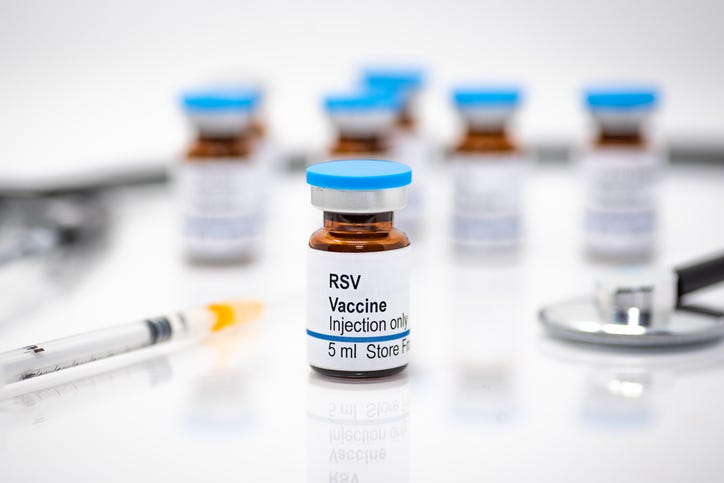
The U.S. Food & Drug Administration has approved the first RSV vaccine for pregnant patients to protect their newborns from the life-threatening virus.
The FDA made the announcement Monday, saying it had extended approval of Pfizer's single-dose Abrysvo for use in pregnant individuals. The drug was previously approved in May for individuals age 60 and older.
"RSV is a common cause of illness in children, and infants are among those at highest risk for severe disease, which can lead to hospitalization," Peter Marks, director of the FDA’s Center for Biologics Evaluation and Research, said in a statement. "This approval provides an option for healthcare providers and pregnant individuals to protect infants from this potentially life-threatening disease."
RSV -- respiratory syncytial virus -- is a highly contagious virus that causes respiratory infections in individuals of all age groups. It is the most frequent cause of lower respiratory tract illness in infants worldwide. The virus is especially common in children, and most individuals can be expected to be infected with RSV by the time they reach two years of age. While RSV most often causes cold-like symptoms in infants and young children, it can also lead to serious conditions such as pneumonia and bronchiolitis. According to the Centers for Disease Control and Prevention, RSV is the leading cause of infant hospitalization in the U.S.
When Abrysvo is administered to pregnant patients at 32 through 36 weeks gestational age, protective antibodies are transferred to the infant through the placenta. The FDA says the vaccine can prevent lower respiratory tract disease and RSV in infants from birth through 6 months of age.
The most commonly reported side effects by pregnant individuals who received Abrysvo were pain at the injection site, headache, muscle pain and nausea, the FDA noted. In addition, although not commonly reported, a dangerous hypertensive disorder known as pre-eclampsia occurred in 1.8% of pregnant individuals who received Abrysvo compared to 1.4% of pregnant individuals who received placebo.
In the safety studies, low birth weight and jaundice in infants also occurred at a higher rate in the pregnant Abrysvo recipients compared to pregnant placebo recipients. However, the FDA said the available data are insufficient to establish or exclude a causal relationship between preterm birth and Abrysvo.
The FDA is requiring Pfizer to conduct additional studies to assess the signal of serious risk of preterm birth and to assess hypertensive disorders of pregnancy, including pre-eclampsia.


